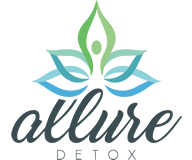Alcohol is one of the most dangerous substances to detox from. After prolonged or excessive alcohol use, your body may begin to depend on the substance to function. As you detox, the alcohol completely leaves your system, and your body must readjust. This leads to a wide range of painful and sometimes dangerous symptoms.
Professional support is vital while detoxing from alcohol. Overcoming your physical addiction to alcohol is an important first step in recovery, and healthcare professionals will work with you to make the process safer and more comfortable. If you or a loved one struggles with alcohol use disorder, you should understand what happens during detox, why medical treatment is so important, and how you can ensure a successful recovery.
Table of Contents
Understanding Alcohol Dependence and Withdrawal
Alcohol dependence and withdrawal are complicated biological processes that affect almost every system in the body. Although not everyone with an alcohol use disorder has a physical dependence on alcohol, dependence is a common and dangerous symptom of addiction.
How Alcohol Dependence Develops
Alcohol disrupts the balance of chemical messengers, or neurotransmitters, in your brain. These chemicals are responsible for regulating your mood, thoughts, behaviors, and a wide variety of processes within your body. The imbalances resulting from alcohol consumption are what cause the feeling of intoxication.
If you consume alcohol only occasionally, these effects wear off fairly quickly, and your brain returns to its normal balance of neurotransmitters. However, frequent or prolonged alcohol use can cause long-term changes to brain chemistry. Your brain adjusts its balance of chemicals so that it can function more normally while alcohol is in your system. Now, because your brain has adapted to the regular alcohol intake, you have to drink more to feel the intoxicating effects of alcohol. Additionally, stopping your alcohol use can result in a severe shock to your system.
Symptoms of Alcohol Dependence
Alcohol dependence often develops gradually. Many people don’t realize that they’re physically addicted to alcohol until they try to quit and experience withdrawal symptoms. The following are some of the most common signs and symptoms of dependence:
- You start needing larger quantities of alcohol to feel intoxicated.
- You’re drinking earlier in the day than you used to.
- You have strong cravings for alcohol.
- You feel symptoms like shakiness, nausea, or insomnia if you go too long without drinking.
- You drink to alleviate the uncomfortable symptoms.
- You’ve tried to cut back or quit without success.
- You use alcohol in unsafe situations, such as when driving.
- You prioritize alcohol over relationships, work, personal care, or other aspects of your life.
Alcohol Withdrawal Syndrome
If you’re physically dependent on alcohol, you may experience withdrawal symptoms a few hours to one day after you stop consuming alcohol. Alcohol withdrawal syndrome (AWS) is the set of symptoms that occur when you stop or reduce your alcohol intake. Cases of AWS can range from mild to severe and can even be life-threatening. Here are some of the most common withdrawal symptoms:
- Anxiety or irritability
- Tremors or shakiness
- Insomnia
- Headache
- Sensitivity to light or sound
- Excessive sweating
- Nausea and vomiting
- Loss of appetite
- High blood pressure
Delirium tremens is a severe and potentially life-threatening form of AWS. The following are the most notable symptoms of delirium tremens:
- Auditory or visual hallucinations
- Confusion or disorientation
- Agitation or aggression
- Seizures
- Rapid heartbeat, trembling, and sweating
Severe delirium tremens is a medical emergency. If you’re experiencing these symptoms, call 911 or go to the emergency room for immediate medical support.

The Alcohol Detox Process
Detox occurs as alcohol leaves your system and your body readjusts to functioning without the substance. Withdrawal symptoms can set in within a few hours of your last drink, but detox can last for a week or longer.
Alcohol Detox Timeline
The exact timeline of your alcohol detox depends on the extent of your alcohol use and your overall health status. Some people experience withdrawal symptoms for just a few days, and others need more than a week to fully detox.
The first symptoms start as alcohol begins to leave your body. This could be a few hours to one day after you stop drinking. The earliest symptoms are usually headache, nausea, and shakiness. You also might feel anxious or irritable.
Symptoms typically increase in severity 24 to 48 hours after your last drink. In addition to your early symptoms, you may also experience tremors, confusion, vomiting, or insomnia. Most people find that the withdrawal symptoms peak at around 48 hours, but some people see their symptoms continue to worsen into their third day of detox.
Your risk of delirium tremens is the highest during the second and third day of withdrawal. Delirium tremens can last for three to four days. It’s critical that you seek medical attention if you’re detoxing at home and experience severe delirium tremens symptoms.
Withdrawal symptoms usually begin to subside around the fourth day of detox. Your symptoms may come and go throughout the day, but they should start to decline in severity. In most people, withdrawal symptoms end after the first week of detox. However, it is possible for some symptoms to continue for longer. Post-acute withdrawal syndrome (PAWS), which can last for several months to a year, is characterized by fatigue, difficulty sleeping, anxiety, and mood swings.
Factors Affecting the Detox Process
The symptoms and timeline of your detox are influenced by a number of factors. This is one reason why seeking medical support during detox is so important. Your healthcare team will consider the unique factors that are affecting your experience when creating a treatment plan.
The extent of your alcohol dependence is one of the biggest determining factors in your detox experience. Individuals who have abused alcohol for longer or in larger quantities will have a stronger dependence on the substance, and their withdrawal symptoms will be more severe.
Your overall physical health can affect your experience with detox, too. Alcohol addiction often prevents people from taking care of themselves. If you haven’t been getting adequate sleep or proper nutrition, withdrawal can be harsher on your body. Chronic health conditions can affect detox symptoms as well.
Co-occurring mental health disorders also have a significant impact on addiction. Withdrawal often causes emotional and psychological symptoms, and these symptoms could be more severe if you already have a mental health disorder. Dual diagnosis treatment is extremely important for people with co-occurring disorders because addiction and mental health are so closely linked.
Alcohol Detox Treatment Options
Detoxing from alcohol without medical assistance can be dangerous and even fatal. If you have a physical dependence on alcohol, you must consult with your doctor before you quit or taper off. When you detox with medical supervision, your healthcare team can monitor you for dangerous symptoms and intervene when necessary. They can also prescribe medications to help with withdrawal symptoms.
Here are some common treatment options for alcohol detox:
Inpatient Detox
An inpatient detox center provides 24/7 care while you detox from alcohol. Some treatment centers offer both detox and rehab services. In this case, after detoxing, you would continue to receive inpatient care for a few weeks or months. Other programs specialize solely in detox. Inpatient detox is typically the safest option for alcohol addiction because it allows for constant supervision from medical professionals.
Outpatient Detox
Outpatient detox can occur at a doctor’s office or addiction treatment center. You continue living at home but visit the clinic regularly to check in and receive support while you detox. These visits may happen every day or every few days depending on the severity of your alcohol dependence.
Your doctor will monitor your withdrawal symptoms and may recommend medications to help you stay safe while detoxing. Outpatient is usually a more convenient and accessible option than inpatient, but it doesn’t provide the same level of support as inpatient services.
Medication-assisted Treatment
Medication-assisted treatment is the use of medication to ease withdrawal symptoms, limit cravings, and make the detox process safer and easier. Medication can be used during inpatient or outpatient detox, and some patients continue using certain medications after they complete detox.
Benzodiazepines, which depress the central nervous system, are one of the most commonly prescribed types of medication for alcohol withdrawal. Another common medication is naltrexone, which blocks the pleasurable effects of alcohol and reduces the motivation to drink. After the initial withdrawal phase, doctors sometimes prescribe acamprosate, which reduces cravings.
How to Successfully Detox From Alcohol
Detoxing from alcohol is a difficult experience, but it’s a necessary step toward restoring your health and happiness. Here are some strategies you can employ to successfully detox:
Seek Professional Treatment
Reaching out for professional support is the best thing you can do when detoxing from alcohol. Withdrawing from alcohol causes a number of unpleasant and dangerous side effects, and medical assistance ensures your safety. If possible, look into inpatient detox services. If you can’t attend an inpatient program, ask your doctor about outpatient services or medications to ease your symptoms.
Lean on Your Support Network
Addiction can be very isolating, but a strong support network is essential during recovery. Don’t be afraid to reach out to friends or family for support while overcoming your alcohol addiction. You don’t have to open up to them about what you’re going through if you don’t feel comfortable speaking about it, but you could ask them to simply be present for you as you detox. If you don’t have a close support network, consider joining a support group to connect with others who have had similar experiences.
Avoid Triggers
Understanding and avoiding your triggers is critical in the early stages of recovery. Eventually, you’ll have to learn how to face challenging or stressful situations head-on. However, during detox, steering clear of triggers is the best way to set yourself up for success. If certain people or places cause you to crave alcohol, do everything in your power to avoid them for now.
Take Care of Your Physical Health
Detoxing from alcohol takes a toll on your body, so caring for your physical health should be a top priority. Withdrawal may cause insomnia, but try to get as much rest as possible. Drink plenty of water and eat nutritious foods. Check your temperature and pulse regularly, and seek immediate medical attention if you show signs of severe illness.
Continue With Long-term Treatment
Detox is the first step in the recovery process, but fully overcoming addiction is a long journey. After detoxing from alcohol, you should seek long-term support. Inpatient rehab provides a safe and structured environment for you to adjust to sobriety. During inpatient, you can gain a better understanding of your addiction and develop coping skills to prevent relapse. Intensive outpatient is another great treatment option. You live at home while attending outpatient services during the day, which can help you ease back into your regular routine while still receiving extensive support.
Therapy is a valuable resource during recovery, too. Recovery always has its ups and downs, but therapy can help you learn to navigate your daily life while staying clean. Family therapy may provide an opportunity for you and your loved ones to explore how addiction has affected your family unit and to heal any broken bonds.
Alcohol is extremely addictive, so overcoming physical dependence is a difficult but important step in recovery. Detox can last for up to a week and can cause a number of side effects, but medical support helps you stay safe and healthy. Allure Detox provides detox services for individuals with alcohol use disorder. If you or a loved one is ready for detox, please contact us to learn more about our services.
FAQ
How long does it take to detox from alcohol?
Published on: 2023-03-28
Updated on: 2024-04-11


